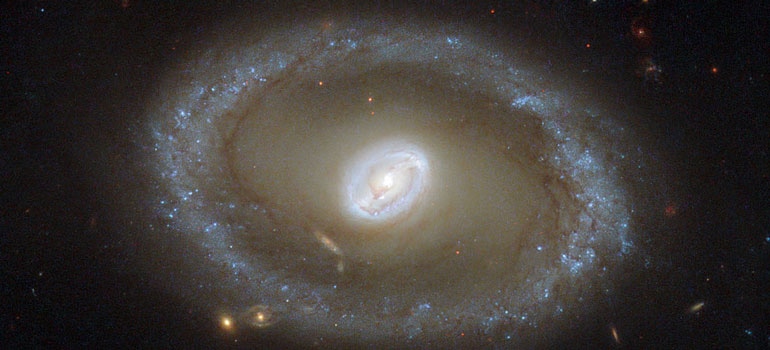May 16 2017
 Credit: NASA
Credit: NASA
One of nature’s puzzles—what causes the accelerating expansion of the universe?—may have been solved by UBC physicists.
This question was analyzed by Qingdi Wang, PhD student, in a new study that attempts to resolve a significant incompatibility issue existing between two of the most successful theories that in fact explain the working of the universe: Einstein’s theory of general relativity and quantum mechanics.
The study highlights that if individuals zoom in on the universe they would learn that the universe is made up of constantly fluctuating time and space.
“Space-time is not as static as it appears, it’s constantly moving,” said Wang.
This is a new idea in a field where there hasn’t been a lot of new ideas that try to address this issue.
Bill Unruh, Physics and Astronomy Professor, UBC
In 1998, astronomers discovered that the universe is expanding at a majorly increasing rate, pointing out that space is not empty and that it is instead filled with dark energy that pushes away matter.
Vacuum energy is considered to be the most ideal natural candidate for dark energy. When the theory of quantum mechanics if applied to vacuum energy by physicists, it predicts the possible existence of an incredibly large density of vacuum energy, which is even more than the total energy of all the particles existing in the universe. If this fact is true, Einstein’s theory of general relativity explains that the energy would have a powerful gravitational effect and most physicists believe that this would lead to explosion of the universe.
Luckily, this does not take place and the universe expands extremely slowly. However, this indeed is a problem that needs to be resolved for the progress of fundamental physics.
A different approach has been suggested by Wang and his colleagues Unruh and Zhen Zhu, also a UBC PhD student, unlike other scientists who have attempted to alter the theories of quantum mechanics or general relativity in order to resolve the issue. Wang and his colleagues seriously take into account the large density of vacuum energy predicted by quantum mechanics and then discover that there is vital information about vacuum energy that was missing in earlier calculations.
A completely different physical picture of the universe is provided by their calculations. The space we live fluctuates wildly in this new picture. It oscillates between expansion and contraction at each point. As it swings back and forth, the two nearly cancel other but an extremely small net effect forces the universe to expand slowly at an accelerating rate.
But if time and space are fluctuating, why is it still not possible for humans to feel it?
“This happens at very tiny scales, billions and billions times smaller even than an electron,” said Wang.
It’s similar to the waves we see on the ocean. They are not affected by the intense dance of the individual atoms that make up the water on which those waves ride.
Bill Unruh, Physics and Astronomy Professor, UBC
Their paper has been recently featured in Physical Review D.